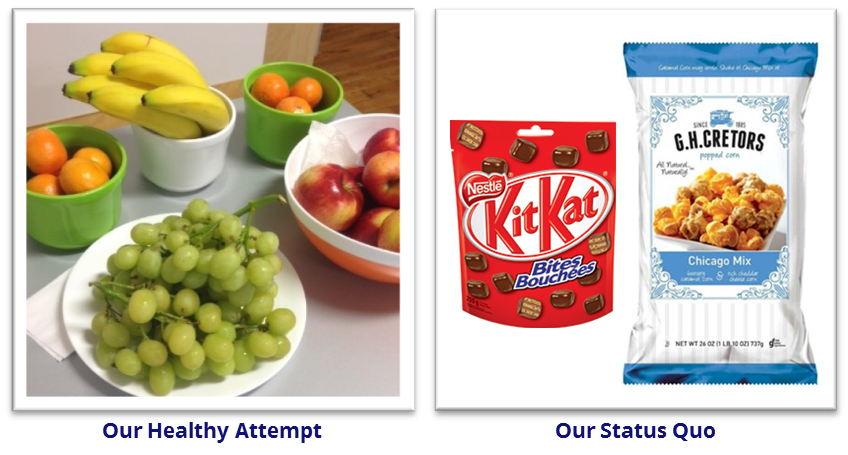We are already near the end of January and I have a feeling a lot of us have broken our “healthy” resolutions.
A recent US study published in the The FASEB Journal, looked at the grocery shopping habits of 207 New York households between the time periods of July to Thanksgiving (Baseline Period), Thanksgiving to New Years (Holiday Period), and New Years to March (Post-holiday Period). Here’s what they found:
- Shoppers increased their grocery spending during the Holiday Period relative to the Baseline Period, as expected
- 75% of the additional Holiday spending was on less-healthy items
- When comparing the Post-holiday Period to the Holiday Period, shoppers increased their spending by 53% – astonishing!
- In the Post-holiday Period, although there was a five-fold increase in healthier food purchases, the amount of unhealthy foods remained the same.
So in other words, instead of substituting the potato chips with kale, shoppers would buy both. The investigators concluded, “Despite resolutions to eat more healthfully after New Year’s, consumers may adjust to a new “status quo” of increased unhealthy-food purchasing during the holidays, and vicariously fulfill their New Year’s resolutions by spending more on healthy foods.”.
It looks like we are no different than these New Yorkers. Here are our most recent grocery purchases for the office:
So while we were patting ourselves on the back for our healthy 2015 snack choices, this study revealed that we too continue to indulge in our snacking status quo and we really need to step back and overhaul our behaviour and choices. It also showed us that established patterns are hard to change and various factors need to fall into place to help us change.
Ironically, this is a common challenge amongst our healthcare clients – compelling data does not always result in an imminent change in behaviour. Perhaps we need to tackle our snack dilemma similarly, by better understanding the Consumer Journey and who and what influences our choices. Maybe then we will begin to make healthy substitutes and not healthy additions to junk food.
Bernice Tseng
Medical Communications Specialist


